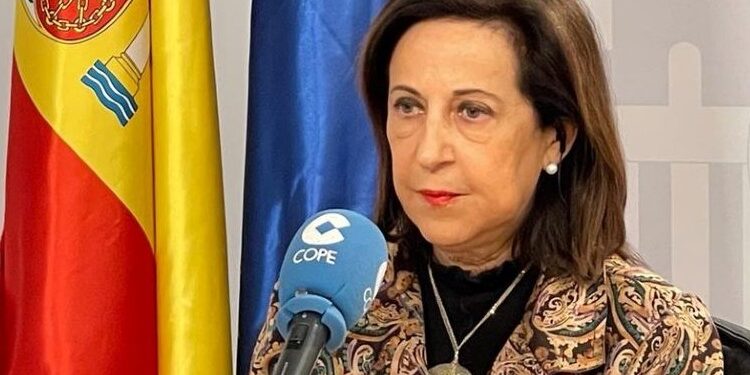The Diplomat
The Minister of Defense, Margarita Robles, assured yesterday that Spain “does not rule out anything” regarding the possible participation in the European anti-missile shield, proposed by Germany and agreed the day before in Brussels by fifteen countries of the continent to strengthen security against Russia.
“It is an option that Germany is taking and that countries closer to Russia have expressed their intention to study it,” Robles said during an interview on the program Herrera en COPE. “It is still in the study phase. It is a German proposal and it is being assessed which missiles would be acquired, and from there they would have to be acquired, and the rest of the countries what they are doing is committing to study the proposal,” she added.
Regarding the possible adhesion of our country, the minister assured that “Spain never rules out anything, because it is something we are proud of, being a reliable ally”. “We will study it, we respect Germany very much (…) If the proposal moves forward and we understand that it is good, we never refuse anything,” she added.
Robles’ statements come a day after fourteen NATO countries – Belgium, Bulgaria, Czech Republic, Estonia, Germany, Hungary, Latvia, Lithuania, the Netherlands, Norway, Slovakia, Slovenia, Romania and the United Kingdom, plus Finland, which is in the process of joining – sealed their commitment to develop a joint air defense system. The agreement was signed at NATO headquarters in Brussels, in the margins of the first defense ministerial meeting since the Madrid Summit last June.
According to Robles, Spain, France, Portugal and Italy have not signed up to the proposal for the time being for geographical reasons. “At the present time we understand that protection is sufficient,” since NATO itself “already has this defense system,” he declared. What the fifteen countries signed, she specified, is the will to study a proposal that, “in any case, would not be put into effect for two, three or four years”.
Robles herself declared the day before in Brussels that Germany had not yet proposed to Spain to participate in the European anti-missile shield. “It is a German decision that is being discussed unilaterally. We understand that our participation in the NATO anti-missile shield is the appropriate one, without prejudice to the fact that, if there were an express request, which has not been made to us, we would attend to it.”
The recent Spanish-German Summit, held on October 5 in A Coruña, did not address the possible participation of Spain in the joint European missile defense system led by Germany, but the President of the Government, Pedro Sánchez, pledged to “study it” when “it is the subject of debate”, as “it cannot be otherwise”.
For his part, the German Chancellor, Olaf Sholz, assured that the issue of the shield had not been addressed, “nor was it on the agenda”, and specified that, in any case, it is a “political measure that has come out of Germany for the defense of Germany”, considering that it is “urgent” to provide the country with “an anti-aircraft defense shield” that also benefits, above all, “the neighboring countries”. “It is a challenge for many years,” he added. Last September, German Defense Minister Christine Lambrecht told Reuters that her government’s goal was to reach an agreement with other NATO countries during the Brussels ministerial meeting.







